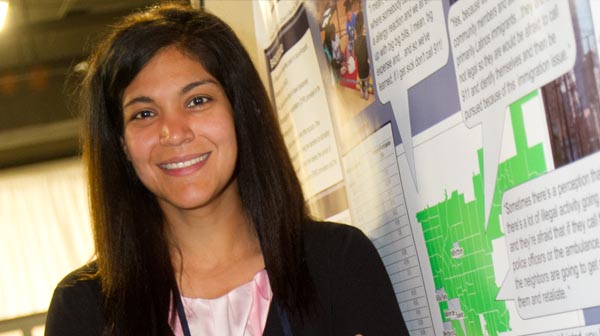
When Comilla Sasson, MD, PhD, FACEP, was an emergency medicine resident, she couldn’t understand why so many cardiac arrest patients were coming into her emergency department without having had any CPR performed. The issue occupied her mind so much that she decided to apply for a grant with the Emergency Medicine Foundation (EMF) to study it.
Explore This Issue
ACEP Now: Vol 39 – No 09 – September 2020EMF is a nonprofit organization whose mission is to fund research that “develops career emergency medicine researchers, improves patient care, and provides the basis for effective health policy.” Since its founding in 1972, EMF has awarded more than $17 million in research grants.
Today, Dr. Sasson is associate clinical professor of emergency medicine at the University of Colorado Denver and author of more than 90 research papers. Dr. Sasson recently spoke with EMF about how the grant she received more than a decade ago propelled her career.
EMF: Tell us about your EMF grant project.
CS: I got an EMF grant to look at racial and health disparities and who is getting bystander CPR. This involves looking at data to actually figure out where in neighborhoods people are getting CPR done or not getting it done. We looked at Denver data, and were able to see that if your heart stopped on one side of the street, your chances of getting CPR were 40 percent less than on the other side of the street. This actually changed the entire trajectory of my career.
EMF: Why did you choose this topic?
CS: I’ve always had an interest in looking at why there are differences in how people do in the emergency department. I did my training at Grady Hospital, which is a Level 1 trauma center in Atlanta, and saw that time and time again, patients primarily who were African American were not having CPR done before they got to the hospital or to the emergency department. We know that time is essential for the brain and heart muscle. For every one minute that you don’t have CPR performed, your chances of surviving go down by about 10 percent. You only have this 10-minute window.
EMF: How did this grant changed the trajectory of your career?
CS: I work for the American Heart Association where every day we think about how can we reduce racial and health disparities in CPR and cardiac arrest survival. Everything that I did from the EMF grant has translated to what I’m making my life’s work and my passion.
EMF: What was the most significant impact of your EMF research grant?
CS: We’ve been able to work with community groups, police, fire, EMS, hospital systems, nonprofit organizations, community-based organizations. We’ve been able to take that data that I got from the EMF grant and do actionable change. We’re making improvements in neighborhoods because of the work that I did through the EMF grant, and now we’re taking that research, turning it into real-world outcomes, and saving more lives by teaching people CPR and then, more importantly, when to call 911.
EMF: Since receiving your EMF grant, what other research awards and achievements have you received?
CS: I’ve gotten a career development award and have an additional $1.5 million of funding to work on opioids, overdose deaths, and how that relates to cardiac arrest. You need somebody to believe in you, and then I think that sets you up to make a huge impact.
EMF: What breakthrough treatments or protocols resulted from your research?
CS: We’ve been able to completely change the way in which we were looking at how to go into communities and do targeted training. It sounds like a really simple concept. We were the first ones that really launched this idea, and since that time, we’ve been going out to more than 10 major urban cities to do the same type of program and we’re working on scaling up to a national program as well.




No Responses to “EMF Grant Helped Physician Study Bystander CPR Disparities”